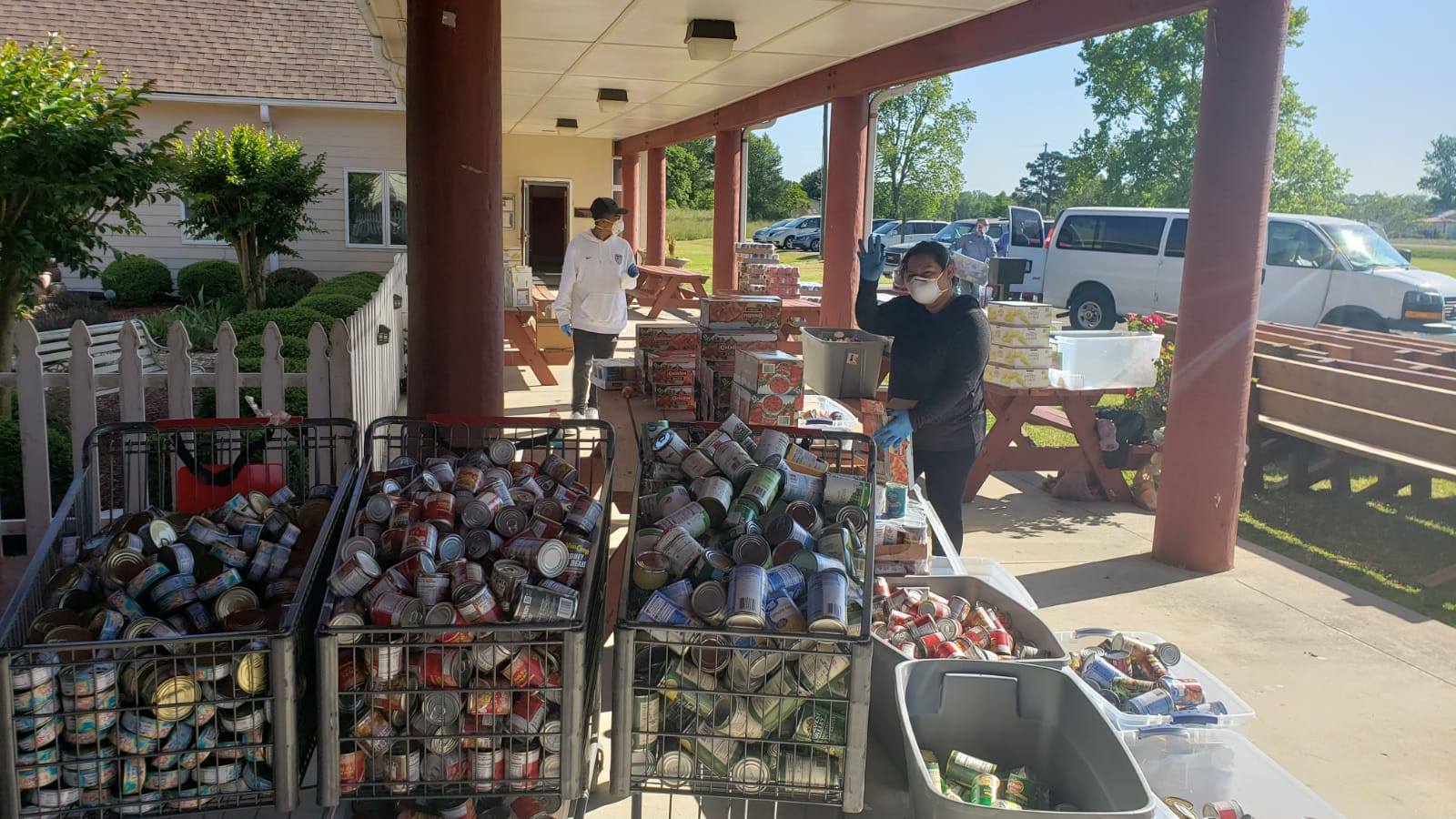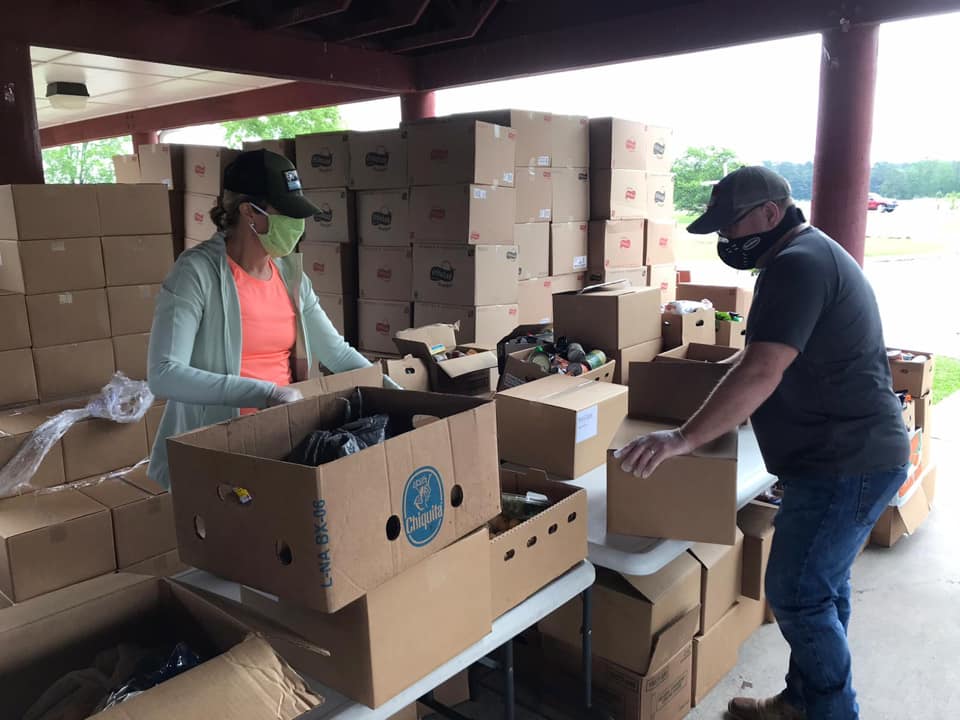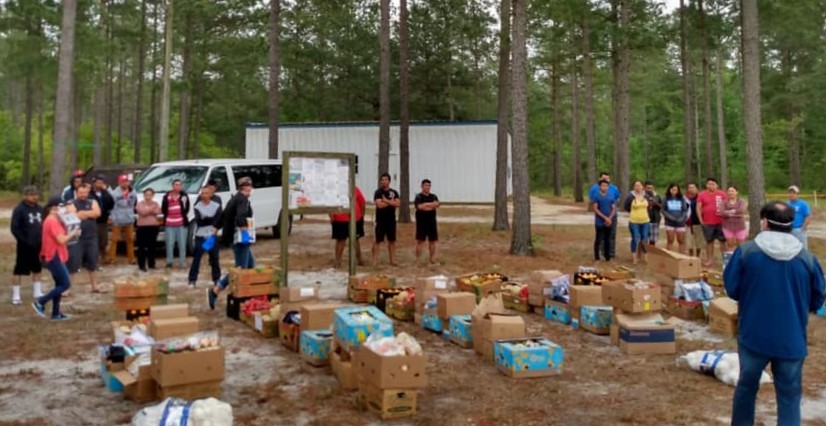“Disasters don’t discriminate.” It’s a common sentiment widely shared in the wake of hurricanes and other emergencies, but is it true?
Not based on the experiences of community organizations on the frontlines of disaster relief, rebuilding and resilience, according to Calvin Allen, the initial convener of the North Carolina Inclusive Disaster Recovery Network and director of Rural Forward NC, a program of the Foundation for Health Leadership & Innovation. “People always say disasters don’t discriminate and that’s not true, they simply do,” he said. “That is the core of why the North Carolina Inclusive Disaster Recovery Network formed.”

After Hurricane Matthew caught many North Carolina communities off guard four years ago, leaders from across the areas of eastern NC most affected saw an emerging need to forge community connections around disaster recovery in new ways. “NCIDR started in 2016 because several statewide and regional nonprofit organizations wanted to be better allies to on-the-ground community groups and realized that the way disaster recovery happened after Hurricane Floyd was not the way it was happening now after Matthew,” said Andrew Shoenig, partnership manager for Rural Forward NC and NCIDR. “Communities were seeing that there were fewer opportunities for voices in the disaster recovery process and that outcomes we’re being affected in inequitable ways. As a result, NCIDR started meeting weekly.”
Since its founding, NCIDR has continued to grow, convening foundations like the North Carolina Community Foundation, government leaders and agencies as well as community leaders and local nonprofits on the frontlines of recovery and rebuilding work. "We realized quickly after Hurricane Matthew that statewide organizations needed better connections to communities and assistance with asking questions and facilitation," Allen said. "We saw that someone needed to convene these groups, so we got to work."
As NCIDR's work forged ahead in the two years of recovery since Hurricane Florence, the NCCF grants committee made a new kind of funding commitment from our NCCF Disaster Relief Fund. "We knew that we wanted to commit funding from the Disaster Relief Fund to intentionally support the communities we saw being hardest hit, having the most unmet needs and facing disproportionate outcomes and disparities in the wake of the latest hurricane to hit eastern North Carolina," said Leslie Ann Jackson, NCCF vice president for community investment and engagement. "We identified NCIDR as the most effective partner for carrying out that work in the participatory way we envisioned and our grants committee fully supported our plan in a profound demonstration of their faith in the people leading this work, deep love for all North Carolina communities and willingness to try something very new for NCCF."
Within a year of Florence's impact on the state, NCCF announced a $250,000 funding opportunity through the NCDIR to support inclusive long-term disaster recovery through nonprofit organizations that are led by or focus long-term recovery efforts on minority communities, people of color and other underserved populations in the area. These grant decisions were made by the members of the NCIDR, not NCCF staff or board members, positioning the funding to be awarded through an entirely participatory model where funding decisions are made by members of the communities being funded.
"We were turning over the dollars to the leaders at the NCIDR table and entrusting them with making grantmaking decisions that we knew would meet the community needs we identified," Jackson said.

The funding focus on minority-led and place-based organizations is notable, according to Allen. "If you look, for example at what is happening with COVID funding, great organizations are being funded, but it's the same nonprofits that always get funding," he said. "That's not what we're doing here."
A big part of the process was recognizing that the organizations applying are still in the process of recovering from the hurricane themselves. "These leaders didn't have time to deal with all the stuff that funders often ask of nonprofits during an application process," Shoenig said. "Funders often put so much pressure on nonprofits to write the perfect proposal so we strategically created a process here where organizations were asked to provide basic information and we let them know we would ask the questions and do the work to help round it out. We didn’t want people to spend time writing the proposal rather than doing the work."
The process resonated with NCIDR grants committee members like Courtney Patterson, eastern North Carolina organizer and former board chair of Blueprint North Carolina. "When we talk about disasters, there are a lot of people who don’t feel like they have a voice to speak for themselves and sometimes shy away from making their needs known," he said. "When we started looking at providing support for survivors of storms, we constantly looked for organizations that are on the ground with people who, generally, are poor and don’t have credit, money or insurance. We were able to provide help to people who probably would not have gotten help otherwise."

For Allen and the leaders at NCIDR, these programs are helping to connect rural communities, local leaders and decision makers in a way that helps all the players bridge their divides and creates new ways forward for programs. "Part of this work is that people don’t understand the system," he said. "The big power of this group is being able to link everyone who is in this giant amorphous system in ways that make roles clearer and moves the work forward."
NCIDR is also playing a role in bringing resources to people historically excluded. "In a lot of ways, it’s who you know and how you know them that gets you access to resources so a lot of nonprofits, particularly smaller ones led by people of color, are often excluded," Allen said. "I didn't fully understand the impact of this work until I realized that even just bringing people to the table is not something that happens every day. We're able to make new connections because leaders with the power to make change happen don't have the opportunity to hear from those most impacted and the people most impacted don’t have decision making power."
Showing that this model of inclusive, participatory, placed-based, community-driven decision-making works for grantmaking is critical for the future, according to Allen. "When people see what goes on at one of these meetings and ask how we did that and want to replicate it, those are our biggest win moments," he said. "We hope to see inclusive and equitable models like these replicated with other mainstream funders."
The leadership of NCCF is proud of the commitments made through this funding, according to Jennifer Tolle Whiteside, NCCF CEO and president. "We've seen firsthand how important responding directly to the communities most affected is during disaster recovery," she said. "We are honored to partner with NCIDR and Rural Forward NC on this important work."
Through these grants, NCCF took a chance on a new kind of philanthropy, according to Shoenig. "They recognized that this kind of grantmaking isn’t about lowering standards, it’s about lowering barriers," he said. "It’s about not putting work on the grantees, but on the funder. It’s the funders who can help grantees meet these hurdles and lower the barriers."
For Allen, this is a moment where philanthropy is rising to the occasion. "Having community in your name does not mean that you get community, do it in a culturally competent way or show that you value every voice," he said. "In the relationship with NCIDR, the Foundation has gone out of its way to say we see the gaps and services and we see the efforts of other communities on the ground and we’re willing to be a leader. NCCF has stepped up to the plate in a huge and powerful way."
For a full list of all nonprofits funded by this program, click here. To learn more about the NCIDR, visit their website here. To learn more about Rural Forward NC and the Foundation for Health Leadership & Innovation, visit their website here.